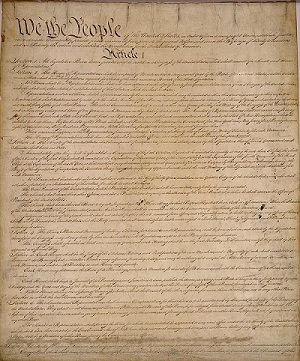After years of uncertainly and even anticipation regarding how Congress would handle federal estate taxes, the American Taxpayer Relief Act was remarkably a “non-event.” The Act essentially extended, or made “permanent” (with one notable exception for very wealthy people), the rules and exemptions for estate, gift and generation skipping transfer taxes that were established in 2010 under the so-called Tax Relief, Unemployment Insurance, Job Creation Act. The 2010 legislation established new tax rates and “unified” the estate tax with the gift tax and GST tax exemptions. (more…)
Mobile Phone Location Not Private Information
If you have ever lost and found your mobile phone by using a GPS locator, such as Find My Iphone, you are aware that these devices can be tracked by satellite. The convenience of this technology also means that others, including the police, can track cell phones. And if your phone is with you, they can track your current location and movements.
Recently, the United States Court of Appeals for the 6th Circuit approved the DEA’s tracking of a drug smuggling suspect’s cell phone location without a warrant. The court distinguished tracking of the suspect’s cell phone location from the scenario where the police physically place a GPS tracking device on a vehicle without a warrant in order to track its movements. The United States Supreme Court has already found the latter scenario to violate the prohibition on unreasonable searches and seizures. See United States v. Jones, 132 S.Ct. 945 (2012). However, the 6th Circuit reasoned that the DEA agents never made physical contact with the suspect’s cell phone and that the suspect obtained the phone with the GPS technology intact. (more…)
Discrimination and Retaliation: Court Examines ‘Whistleblower’ Provision of Civil Rights Act
Title VII of the Civil Rights Act of 1964 prohibits discrimination against employees on the basis of race, color, religion, sex or national origin. The Civil Rights Act also contains a “whistleblower” provision which prohibits employers from retaliation against employees who complain of Title VII violations. The United States Supreme Court recently agreed to hear a case involving the question of whether Title VII’s retaliation provision requires an aggrieved employee to prove that the employers’ conduct (retaliation) was a direct result of the employee making the complaint (“but for” causation) OR whether the employee only has to prove that the employee’s complaint was a “motivating factor” for an adverse employment action. Univ, of Texas Southwestern Med. Centr. V. Nassar, 674 F. 3d, cert. granted January 18, 2013.
(more…)
How Gun Crimes and Misdemeanors Affect Second Amendment Rights
The Second Amendment to the United States Constitution protects the ‘right of the people to keep and bear arms‘ and many states, including Tennessee, have similar provisions is their constitutions. However, an individual’s right to possess and/or carry a firearm is not absolute and is subject to limitations where there is a sufficient governmental interest. One area where the government has a justifiable interest to restrict gun rights is for persons who have been charged with or convicted of certain other crimes.
Felonies and Misdemeanors: Both Tennessee law and federal law prohibit convicted felons from possessing firearms, and convictions for certain misdemeanors may also affect an individual’s gun rights. (more…)
Reciprocal Wills a Commonly Sought Option for Couples
 Many clients who “just want a simple will” are looking for reciprocal wills: They want to provide for their spouse when they die and take care of their minor children if both parents are deceased. Reciprocal wills are separate wills that are mirror images of each other. Generally they provide that if one spouse dies, then everything will be left to the surviving spouse or partner; and when both parties pass away, everything shall go to the children (or some other agreed upon beneficiaries).
Many clients who “just want a simple will” are looking for reciprocal wills: They want to provide for their spouse when they die and take care of their minor children if both parents are deceased. Reciprocal wills are separate wills that are mirror images of each other. Generally they provide that if one spouse dies, then everything will be left to the surviving spouse or partner; and when both parties pass away, everything shall go to the children (or some other agreed upon beneficiaries).
Reciprocal wills are not joint wills, but they may serve the same purpose—assuming that neither party changes their wills before their death. These types of wills often include guardianship provisions and a trust for minor children that may be beneficiaries. Reciprocal wills do not fit every couple’s situation. They should be tailored to meet each family’s or individual’s estate planning needs.
Warrantless Blood Tests for Suspected Drunk Drivers Sometimes ‘Reasonable Search’
The Fourth Amendment to the United States Constitution and Article I, Section VII of the Tennessee Constitution prohibit unreasonable searches and seizures. What is a reasonable search? A search or arrest without a warrant based upon probable cause is unreasonable unless . . . an exception to this rule applies. There are many types of exceptions but one recognized exception is that a warrantless arrest, search or seizure may be justified by “exigent” circumstances. Generally, the surrounding circumstances must be an emergency situation or where evidence could be destroyed if the police must take time in order to obtain a warrant. Recently, the United States Supreme Court, heard oral arguments in Missouri v. McNeely on the issue of whether a police officer may obtain a blood sample from a suspected drunk driver without a warrant. The justification for the warrantless search is that alcohol naturally dissipates in the blood and therefore there is not sufficient time to obtain a warrant before requiring the blood sample. (more…)
DUIs Deemed ‘Unprofessional Conduct’ for Tennessee Doctors
The Tennessee Court of Appeals has reasoned that the conviction for a DUI may constitute “unprofessional conduct” and result in sanctions for a physician by the Tennessee Board of Medical Examiners. A Tennessee doctor pled guilty to a DUI in Arkansas and was subsequently placed on probation by the board. In Kleier v. Tennessee Bd. of Medical Examiners, the court reversed Chancellor Carol McCoy’s ruling that “absent some definition of the standard of care” TCA 63-6-214(b)(1) was impermissibly vague. This subsection is basically a catch-all provision which provides that a physician could lose his license for “unprofessional, dishonorable or unethical” conduct. (more…)
Property Use Restrictions ‘Run with the Land,’ can Outlive Active HOAs
If you own a home in a newer subdivision, you are likely a party to a binding contract whether you know it or not. In addition to applicable zoning ordinances and subdivision regulations, most subdivision developments provide for limitations or prohibitions on property uses and establish other requirements and limitations on buildings, fences and other structures.
Restrictive covenants (often referred to as covenants, conditions and restrictions (“CC&Rs”) are typically established and enforced by the subdivision developer initially, and then enforcement may later be turned over to a homeowner’s association (“HOA”). However, even if you purchase a home in an established subdivision where the developer is long gone and there is not an active HOA, there may be still be restrictive covenants of record that affect your property rights. They affect your rights because they are in the chain-of-title and are said to “run with the land.” (more…)
Changing the Constitutuion: Easier Said (or Sung) than Done
“You say you’ll change the constitution, well you know, we all want to change your head.”
—The Beatles, “Revolution 1” (Lennon/McCartney)
 Constitutional amendments don’t come easy, and that is the way it was intended. The first ten amendments, or the Bill of Rights, were enacted in December 1791, less than 3 years after the Constitution which went into effect in March 1789. Since then, there have been only 17 amendments approved and ratified, and of those, the 18th Amendment (which prohibited alcohol) was repealed by another (the 21st).
Constitutional amendments don’t come easy, and that is the way it was intended. The first ten amendments, or the Bill of Rights, were enacted in December 1791, less than 3 years after the Constitution which went into effect in March 1789. Since then, there have been only 17 amendments approved and ratified, and of those, the 18th Amendment (which prohibited alcohol) was repealed by another (the 21st).
Article V of the United States Constitution provides that it may be amended in one of two ways:
1. Congress may propose amendments to the states with the approval of the House of Representatives and Senate by a two-thirds (2/3) vote. To become effective, the amendment must be ratified by the legislatures of three-fourths (3/4) of the states or state ratifying conventions. (more…)
Internet Defamation: When Digital Dissing Becomes a Legal Issue
Internet reviews on sites such as Yelp! or Urbanspoon, blog posts, Tweets, etc. are a great source of information for consumers. However, if you’ve had a bad experience with a company (or and individual, for that matter), avoid taking your frustration to the Internet by publishing false information or accusatory allegations. Internet defamation can expose you to personal liability for any damages that the source of your frustration may incur.
So, what is Internet Defamation?
In short, it’s anything you say online – whether it be a review, blog post, comment, email, website, Facebook post, Tweet, etc. – that’s a false statement of fact and reflects negatively on the reputation of another. Even things posted in jest can qualify as defamation if the receiving individual or company feels threatened or abused by the statement. (more…)













